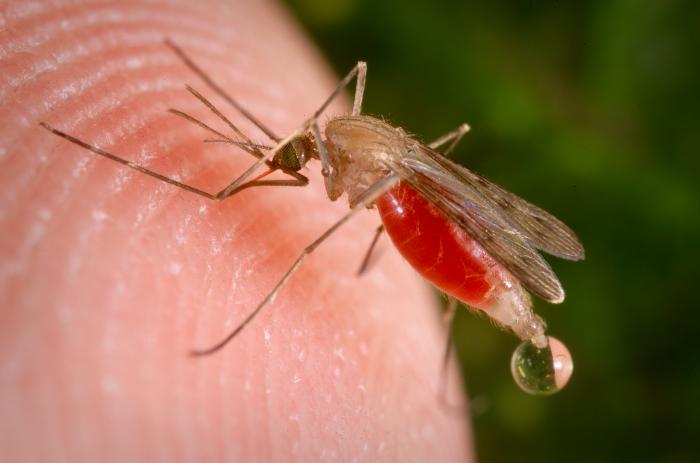Health and district administration officials in Bagalkot district in the Indian state of Karnataka are experiencing a surge of scores of malaria cases during the past week causing officials to make moves to get the outbreak under control, according to a Deccan Herald report.

The four affected villages, Guggalmari, Hirekodagali, Hanumanal and SB Gudur, have seen a combined 172 malaria cases during the short time frame. More worrisome, the bulk of the cases are caused by the most serious strain of the malaria parasite, Plasmodium falciparum.
A number of public health measures have been taken to include dispatching medical teams to the region, setting up health clinics and mosquito control measures including the use of Gambusia fish to eliminate mosquito larvae.
District Health Officer Dr Rajkumar Yeragal said the quarry pits filled with rainwater have turned into a breeding ground for mosquito.
Malaria is considered the most important parasitic disease affecting humans. The disease has great socio-economic importance and helps in keeping poor countries poor in a vicious cycle.
The protozoan parasite belongs from the genus Plasmodium. There are many species of Plasmodium that infect vertebrates, but only 4 that are important to humans. The four species are: Plasmodium falciparum, Plasmodium vivax, Plasmodium malariae and Plasmodium ovale.
In addition, there has been some documented cases of people getting simian malaria (P. knowlesi).
For malaria to occur you must have the following; a susceptible population, malaria carriers and the right mosquito vector (the female Anopheles mosquito).
Untreated P. falciparum (the life-threatening species) can lead to severe malaria. Severe malaria is characterized by cerebral malaria, severe anemia, renal filure (black water fever), respiratory distress and bleeding disorders and shock.
Prompt treatment for falciparum malaria is essential cause death from cerebral complications may occur.
The other human malarias are not usually life-threatening. People who are partially immune or non-immune but taking prophylactic anti-malarials, may show atypical symptoms and a longer incubation period.
Treatment of malaria depends on several factors; The type (species) of the infecting parasite, the area where the infection was acquired and its drug-resistance status, the clinical status of the patient, any accompanying illness or condition, pregnancy, drug allergies, or other medications taken by the patient.
Chloroquine, Fansidar, mefloquine , Malarone, quinine, doxycycline and artemisin derivatives can be used to treat malaria. See link for treatment guidelines.
Robert Herriman is a microbiologist and the Editor-in-Chief of Outbreak News Today and the Executive Editor of The Global Dispatch
Follow @bactiman63
Related:

